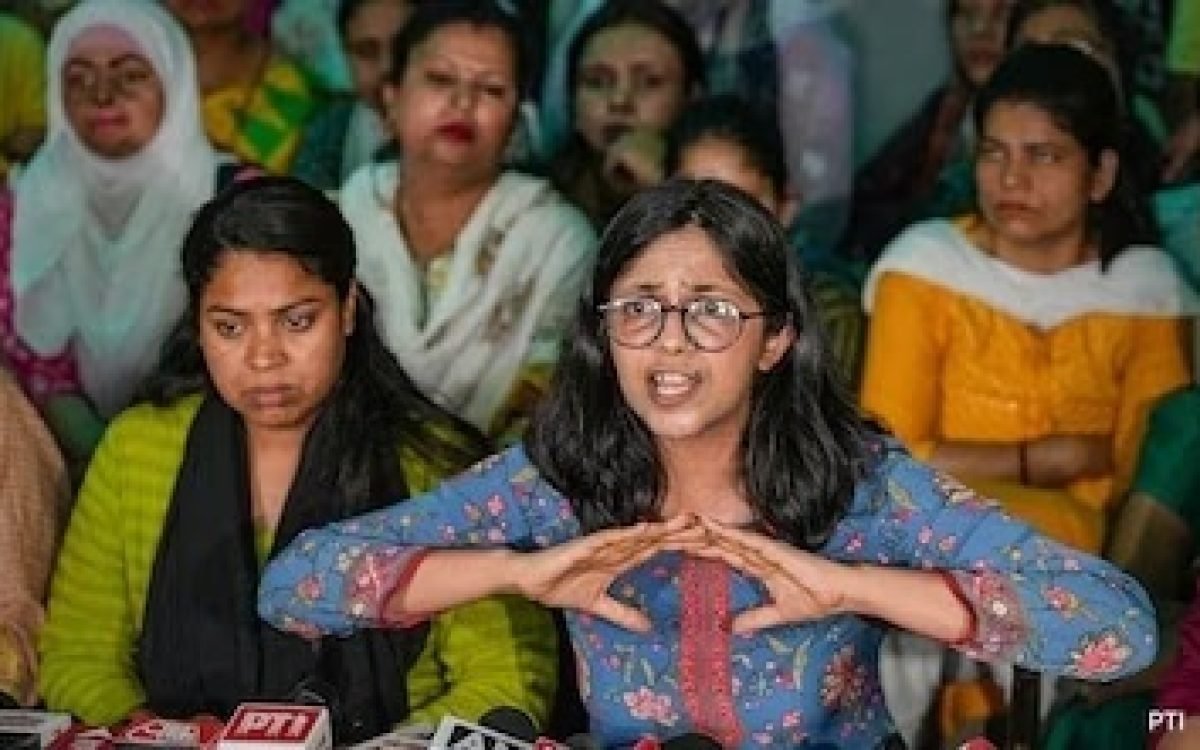A recent announcement by the Lieutenant Governor’s office regarding the termination of employees at the Delhi Commission for Women (DCW) has sparked controversy and drawn criticism from various quarters. The mass sackings, initially reported to be 223 employees, have now been clarified to be 52, leading to heated debates and accusations of arbitrary decision-making.
The Women and Child Development (WCD) Department clarified that while 223 posts were created without proper authorization, only 52 staff were actually hired, leaving the remaining positions vacant. This clarification followed criticism from former DCW chief and AAP Rajya Sabha MP Swati Maliwal, who labeled the order as “Tughlaqi” and questioned the government’s approach to governance.
Maliwal’s concerns are echoed by many who argue that the drastic reduction in staff will severely affect the functioning of essential services provided by the DCW, including Sahyogini, the 181 women helpline, Rape Crisis Cell, Crisis Intervention Centre, Mahila Panchayats, and the Acid attack and rehabilitation cell. With only 38 staff remaining in the Commission, questions arise about its ability to effectively address issues related to women’s rights and welfare.
The controversy surrounding the mass termination stems from a report submitted by a committee in June 2017, which highlighted irregularities in the creation of posts and contractual appointments at the DCW. The committee, constituted by former Lt Governor Anil Baijal, was tasked with investigating complaints of unauthorized appointments and posts.
The order issued by the Lieutenant Governor’s office cites the Delhi Commission for Women Act and states that the panel has a sanctioned strength of 40 employees. It alleges that 223 new posts were created without proper approval and that the commission does not have the authority to hire employees on contract. Former DCW chairperson Swati Maliwal has been accused of making appointments without permission, violating established rules and procedures.
Maliwal, on her part, vehemently denies these allegations and asserts that the DCW requires additional staff to effectively carry out its mandate of protecting and promoting women’s rights. She argues that the organization, built with dedication and hard work, should not be dismantled due to bureaucratic red tape and arbitrary decisions.
The controversy raises broader questions about governance, accountability, and the protection of institutional autonomy. Critics argue that the mass termination reflects a lack of understanding of the DCW’s role and the challenges it faces in addressing gender-based violence and discrimination. They call for a more nuanced approach that takes into account the complex realities of women’s lives and the need for specialized support services.
Moving forward, it is essential for all stakeholders to engage in constructive dialogue and find a solution that ensures the continued functioning of the DCW while addressing concerns about accountability and transparency. Protecting women’s rights and promoting gender equality requires a collective effort and a commitment to upholding the principles of justice and fairness. Only through collaboration and mutual respect can we build a society where all individuals are treated with dignity and respect, regardless of gender.









